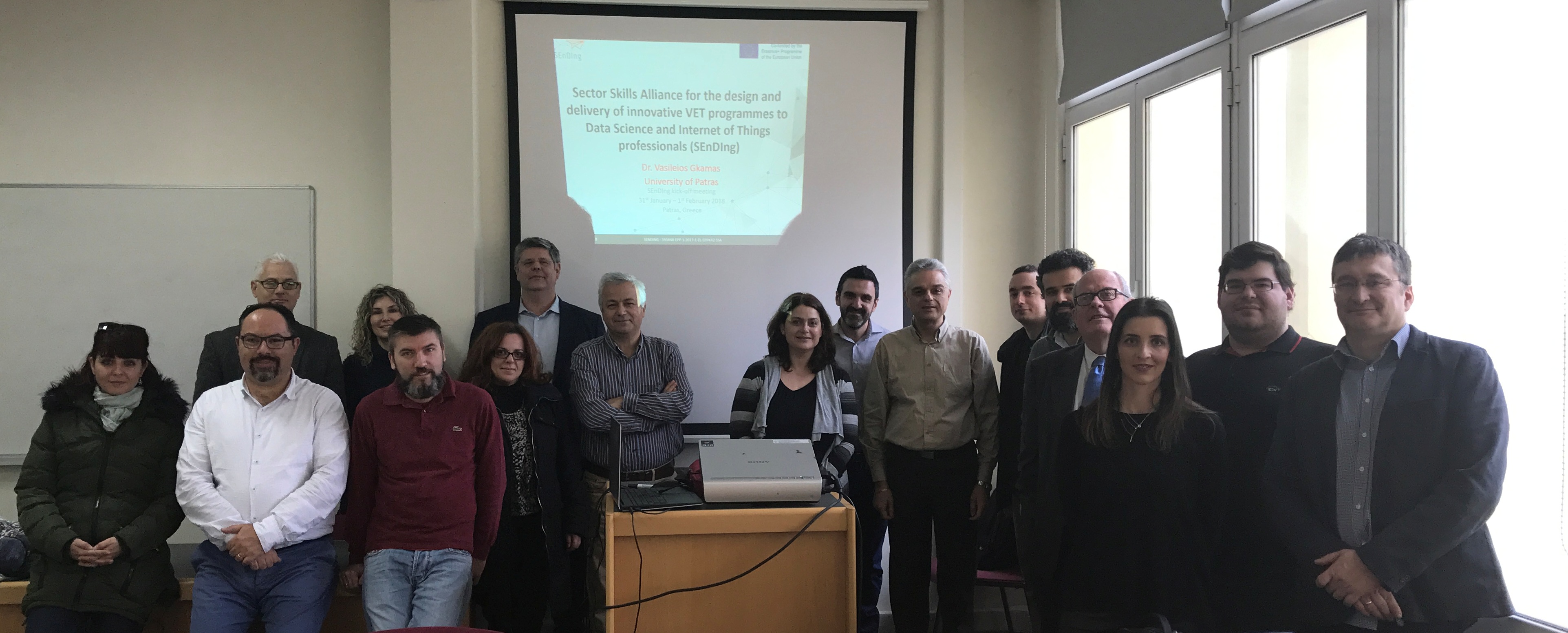Introducing the SEnDIng SSA project
Data Science and Internet of Things have been recognized as the technologies among the key drivers of change regarding the skills and competences required by IT professionals. The forecasted skills’ gap together with the rapid and continuous evolution of Data Science and Internet of Things technologies and their broad application at many economy’s sectors make the skills required by the related occupational profiles increasingly sophisticated, and the need to be constantly updated imperative.
The Sector Skills Alliance for the design and delivery of innovative VET programmes to Data Science and Internet of Things professionals (SEnDIng) project aims to address the skills’ gap of Data Scientists and Internet of Things professionals and provide them with knowledge, skills and competences that meet the labor market needs. To achieve this goal, SEnDIng will develop and deliver to the two aforementioned occupational profiles two learning outcome-oriented modular VET programmes using innovative teaching and training delivery methodologies. Each VET program will be provided according to the blended learning model incorporating a strong work based learning component. Furthermore, a common reference scheme of competences, skills, knowledge and proficiency levels for Data Science and Internet of Things professionals will be designed in accordance with European frameworks (European eCompetence Framework and ESCO), together with a certification scheme following the ECVET framework, to ensure that the produced results will be transferable and recognized among European countries.
The SEnDIng alliance brings together twelve partners coming from Greece, Bulgaria, Cyprus and Ireland with different profile, expertise and culture (higher education institutes, VET providers, IT associations, SMEs and a certification body) that share a common vision: to provide the European labor market with high qualified DS and IoT professionals.
Project target groups
- IT professionals and associations
- VET providers
- Certification bodies
- Higher Education Institutes
- Companies & SMEs
- Policy-makers
SEnDIng is a 3 year project coordinated by University of Patras, Greece and co-funded by the Erasmus+ Programme of the European Union. It started on 1st December 2017 and will end on 30th November 2020.




